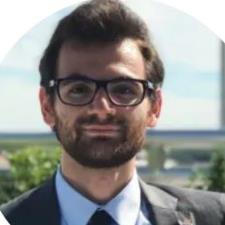An excerpt from A Thousand Splendid Suns
By Khaled Hosseini – Afghanistan
Mariam had never worn a burqa before. Rasheed had to help her put it on. The padded
headpiece felt tight and heavy on her skull, and it was strange seeing the world through a mesh
screen. She practiced walking around her room in it and kept stepping on the hem and stumbling.
The loss of peripheral vision was unnerving, and she did not like the suffocating way the pleated
cloth kept pressing against her mouth.
“You’ll get used to it,” Rasheed said. “With time, I bet you’ll like it”.
They took a bus to place Rasheed called Shar-e-Nau-Park, where children pushed each
other on swings and slapped volleyballs over ragged nets tied to tree trunks. They strolled together
and watched boys fly kites, Mariam walking beside Rasheed, tripping now and then on the burqa’s
hem. For Lunch, Rasheed took her to eat in a small kebab house near a mosque, he called it the
Haji Yaghoub. The floor was sticky and the air smoky. The walls smelled faintly of raw meat and
music, which Rasheed described to her as logari, was loud. The cooks were thin boys who fanned
skewers with on hand and swatted gnats with the other. Mariam, who had never been inside the
restaurant found it odd at first to sit in a crowded room with so many strangers, to lift her burqa to
put morsels of food into her mouth. A hint of the same anxiety as the day at the tandoor stirred into
her stomach, but Rasheed’s presence was of some comfort, and after a while, she did not mind so
much the music, the smoke, even the people. And the burqa, she learned to her surprise, was also
comforting. It was like a one-way window. Inside it, she was an observer, buffered from scrutinizing
eyes of strangers. She no longer worried that people knew, with a single glance, all the shameful
secrets of her pasts.
The women in this part of Kabul were a different breed from the women in the poorer
neighborhoods- like the one where she and Rasheed lived, where so many of the women covered fully.
These women were- what the word Rasheed has used? –“modern”. Yes, modern Afghan women married
to modern Afghan men who did not mind that their wives walked among strangers with makeup on their
faces and nothing on their heads. Mariam watched then cantering uninhibited down the street, sometimes
with a man, sometimes alone, sometimes with rosy-checked children who wore shiny shoes and watches
with leather bands, who walked bicycles with high-rise handlebars and gold-colored spokes-unlike the
children in Deh-Mazang, who bore sand-fly scars on their cheeks and rolled old bicycle tires with sticks.
The women were all swinging hand bags and rusting skirts. Mariam even spotted one smoking
behind the wheel of a car. Their nails were long, polished pink or orange, their lips red as tulips. They
walked in high heels, and quickly as if on perpetually urgent business. They wore dark sunglasses, and,
when breezed by, Mariam caught a whiff of their perfume. She imagined that they all had university
degrees, which they worked in office buildings, behind desks of their own, where they typed and smoked
and made important phone calls to important people. These women mystified Mariam. They made her
aware of her own lowliness, her plain looks, her lack of aspirations, and her ignorance of so many things.
After reading the literary pieces closely, try to reflect on what the texts say and come up with your own evaluation or reaction through the questions below.
3.
An excerpt from A Thousand Splendid Suns
By Khaled Hosseini – Afghanistan
Identify one social problem/issue presented in the text. Is the problem still evident to the present? Elaborate/support your answer by providing examples.




